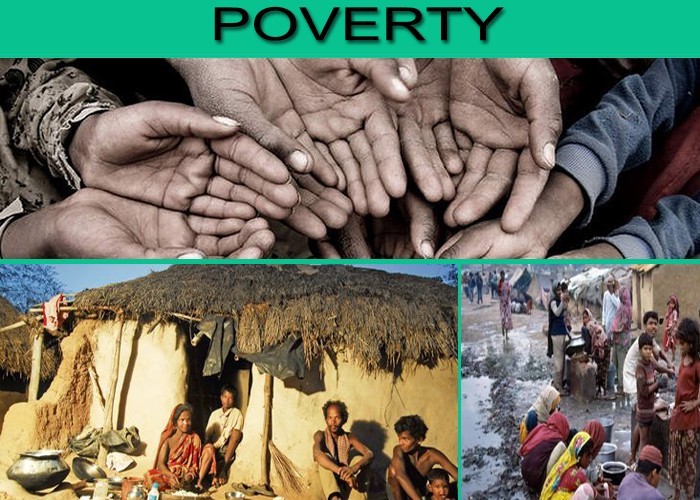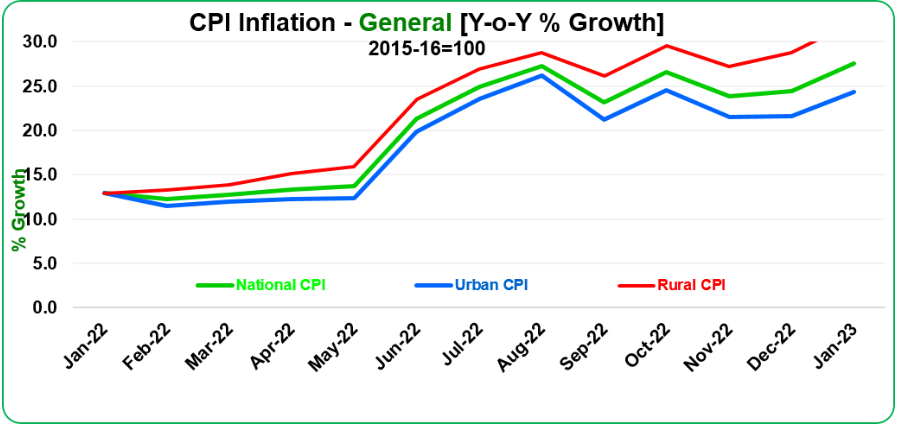INP-WealthPk
Arsalan Ali
The food inflation crisis in Pakistan is having a drastic impact on the country’s poverty rate, which can be mitigated through micro and macro-level interventions from the government, says an economic expert.

While talking to WealthPK, Dr Shujaat Farooq, Dean at Pakistan Institute of Development Economics, said the unprecedented inflation has significantly impeded the standard of living of the Pakistani populace. According to the Pakistan Economic Survey published by the Ministry of Finance, 21.9% of the population is below the poverty line. In addition, a significant 17% of the population is currently facing food insecurity, a situation with severe repercussions for the health and welfare of the nation.
Data from the Pakistan Bureau of Statistics (PBS) shows an alarming trend in the country’s inflation rates. Data indicates that rural areas in Pakistan are experiencing significantly higher CPI (consumer price index) inflation than their urban counterparts. In January 2023, the CPI inflation rate in urban areas rose to 24.4% on a year-on-year (YoY) basis, compared to 21.6% during the previous month, and a sharp surge from 13% in January 2022.
However, the CPI inflation rate in rural areas was even more staggering, reaching 32.3% on a YoY basis in January 2023, up from 28.8% in the previous month and 12.9% in January 2022. “Inflation has dealt a blow to the already struggling low-income households,” Dr Shujaat said, and added that the current economic crisis has made it increasingly difficult for these households to survive, as they bear the brunt of the disproportionate burden imposed by inflation.

Pakistan Bureau of Statistics/WealthPK research
As Shujaat pointed out, poorer households have been particularly hard hit by the rising costs of food. This is largely due to differences in consumption patterns, with these households spending a larger portion of their income on basic necessities like food. “On the other hand, better-off households have felt the impact of inflation in a different way. They have been more exposed to inflation driven by energy prices, particularly fuel prices, which have seen a significant increase in recent times,” he said.
According to Dr Shujaat, inflation rates have not significantly varied between the poorest and wealthiest households. However, the impact of rising prices on the less fortunate is expected to be disproportionately harsh. The reason behind this, Shujaat explained, is that households with limited financial resources will have to either cut down on their overall consumption or settle for lower-quality and cheaper substitutes in response to the mounting costs. He said that key factors that drive food inflation in Pakistan include shortage of food supply, devaluation of the currency, and rising input costs for food production.
The expert highlighted that this trend of food inflation is not merely a temporary blip; it is here to stay, affecting millions of people and driving poverty rates to new heights. “The recent catastrophic floods in Pakistan have added to the already mounting pressures of inflation,” he said. Shujaat said reducing import duties on sensitive food products can help lower food prices. He said this strategy is particularly relevant in the current context where higher food prices are driven by flood-related disruptions.
Dr Shujaat said that Pakistan’s current cash transfer program, provided by the Benazir Income Support Program (BISP), needs a redesign to eradicate extreme poverty effectively. While the program has made efforts to mitigate poverty, he believes that it has not been successful in consumption smoothing, rendering it insufficient to eradicate extreme poverty.
To tackle this problem, Dr Shujaat recommended a comprehensive approach that includes both micro and macro-level interventions, creating economic opportunities for the country’s most vulnerable populations. He suggested that micro-level interventions, such as conditional cash transfer programs aimed at improving education, vocational training, and health, could help uplift the most vulnerable populations. He maintained that macro-level initiatives, including inclusive growth and investment in social inclusion, are critical to reducing poverty rates in the country. Dr Shujaat emphasised that the government must take steps to reduce the cost of inputs for food production, including lowering tariffs and taxes on food items, to ensure that it remains affordable for all.
Credit: Independent News Pakistan-WealthPk



